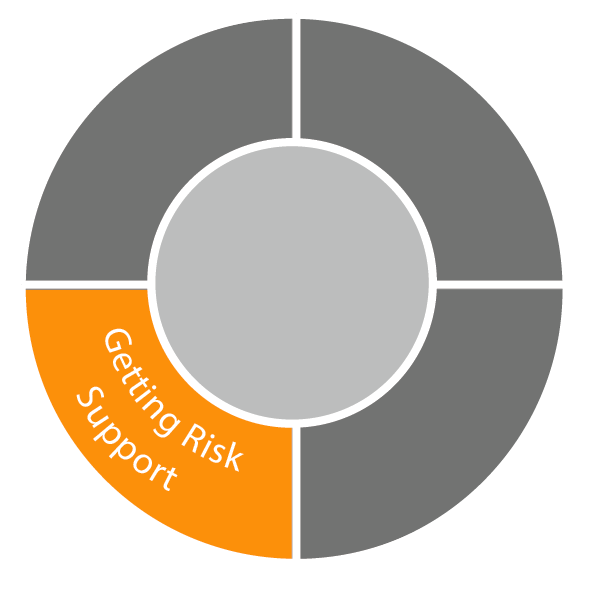
The aim of specifying a category of Getting Risk Support is for all partners to be clear that what is being provided is managing risk ONLY.
It is important to note that there are likely to be risk management aspects in all groupings. However, in the context of high concerns but lack of therapeutic progress for those in this group, risk management is the sole focus.
Children or young people in this grouping may have some or many of the difficulties outlined in Getting Help or Getting More Help above BUT, despite extensive input, they or their family are currently unable to make use of help, more help or advice AND they remain a risk to self or others.
Children, young people and families in this grouping are likely to have contact with multiple-agency input such as from social services and youth justice.
This grouping comprises those children, young people and families who are currently unable to benefit from evidence-based treatment but remain a significant concern and risk.
This group might include children and young people who routinely go into crisis but are not able to make use of help offered, or where help offered has not been able to make a difference; who self-harm; or who have emerging personality disorders or ongoing issues that have not yet responded to interventions.
Resources
- Getting Risk Support 7 Minute Briefing
- THRIVE Framework Animation: Look out for the Getting Risk Support section of the animation to see how children and young people have brought this needs based grouping to life.
- For more in depth training on Risk Support, we have our i-THRIVE Academy Module: ‘Risk Support’
Getting Risk Support i-THRIVE Implementation Stories
These implementation stories focus on how sites are providing support for children, young people and families who are in the Getting Risk Support needs based grouping.
- Camden’s approach to delivering ‘Risk Support’
- How the Waltham Forest THRIVE Clinic Helps To Support Children and Young People Considered to be at Risk
- Haringey’s First Step Service Model Aligned with the THRIVE Framework
- The Camden CAMHS in Schools Service
- ‘Camden Model of Social Care’: enhancing capacity in a children’s social work service through live systemic supervision
- An example of crisis provision and Risk Support across the system: Camden Adolescent Intensive Support Service (CAISS), Tavistock & Portman NHS Foundation Trust
To access direct support from the programme team to assist with the implementation of the THRIVE Framework locally, please contact the team at ithriveinfo@tavi-port.nhs.uk.